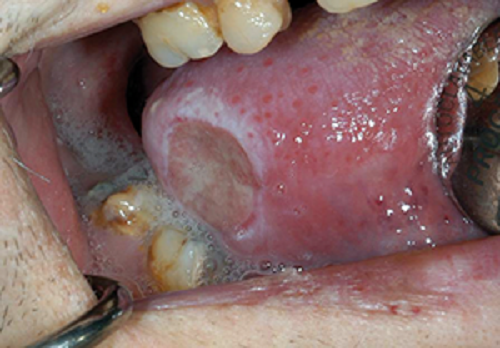Traumatic oral ulcers
Oral ulceration due to trauma is common and can be associated with:
- eating rough, sharp or hot foods
- sharp broken teeth or dental restorations
- toothbrushing
- oral prostheses or orthodontic appliances
- chemical burns (eg following incorrect use of tooth-bleaching products).
Address causes of trauma, including changing oral hygiene practices, smoothing sharp edges of teeth or restorations, adjusting prostheses or placing wax on orthodontic appliances.
Most traumatic ulcers resolve spontaneously if the cause of the trauma has been adequately addressed. However, if any 'red flag' features of oral mucosal disease are present, refer to an appropriate specialist.
A salt water mouthwash is antiseptic and may provide symptomatic relief. If temporary pain relief is required, apply a topical anaesthetic or analgesic to the ulcer, such as:
benzydamine 1% gel (adult and child 6 years or older) topically to the ulcer, 2- to 3-hourly as necessary. oral ulcers, traumatic benzydamine
Persistent ulcers (lasting more than 2 weeks despite addressing the cause of trauma; see Persistent traumatic ulcer of the right posterior lateral margin of the tongue) or recurrent ulcers require investigation; refer to an appropriate specialist.

